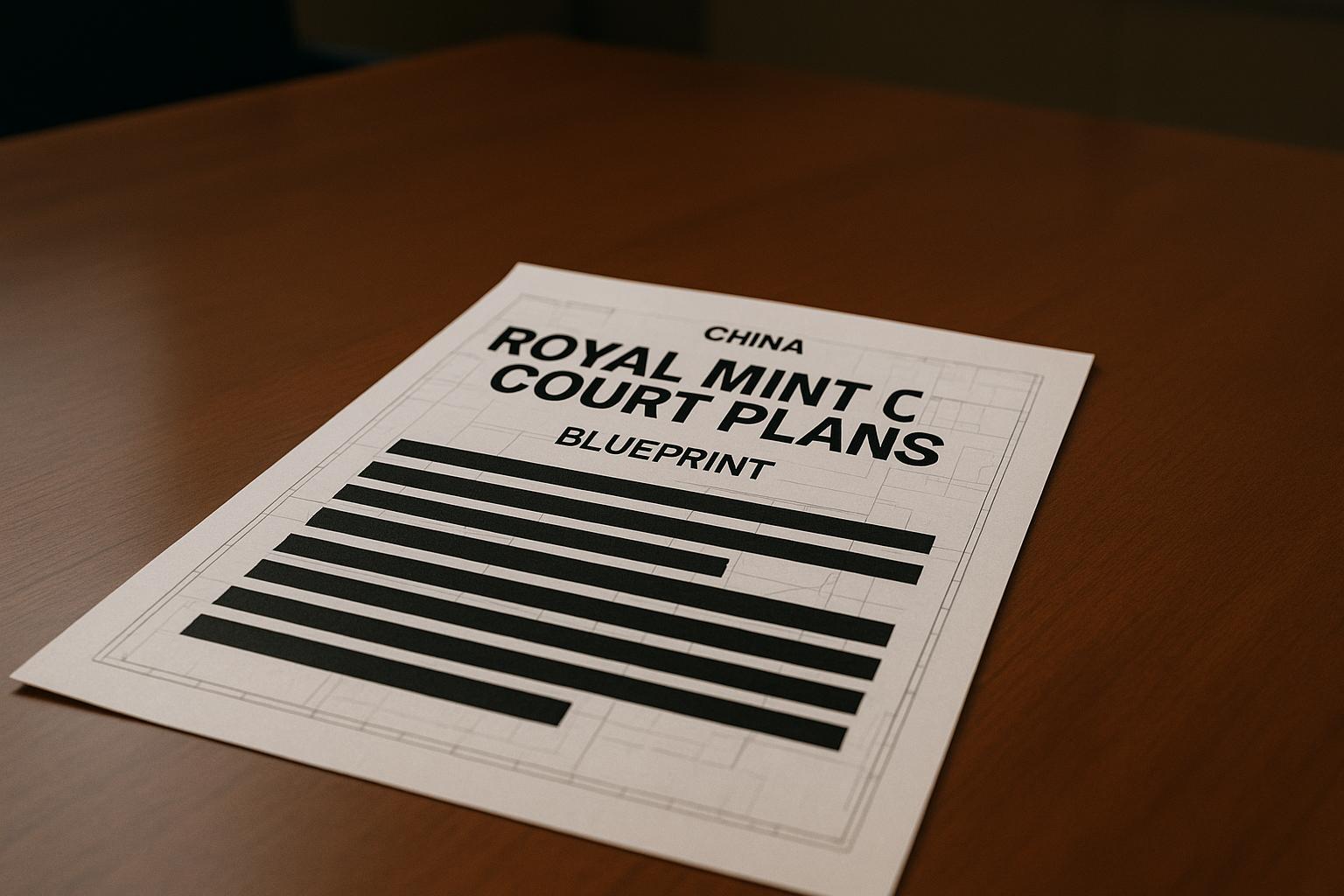One of the UK’s foremost planning lawyers has issued a legal opinion warning that approving the Chinese government’s plan for a “mega embassy” at Royal Mint Court near the Tower of London would be unlawful. Lord Banner KC submitted the opinion to the UK government just before the final deadline for objections to the scheme, which seeks to transform the historic site into the largest embassy of any nation in Europe. The residents of the Royal Mint estate, whose flats are now owned by China, commissioned Lord Banner’s expert view amid fears they could be forced to leave their homes if the embassy plans proceed.
The planning application has been mired in controversy, notably because key sections of the proposed embassy’s internal layout have been redacted by China. This opacity has raised concerns among local residents, Hong Kong dissidents, and Chinese pro-democracy activists in the UK, who worry that the obscured rooms might be used to detain or interrogate opponents of Beijing’s Communist regime. When challenged, China’s planning representatives only clarified the purpose of some spaces, asserting that embassy layouts differ from typical developments and citing confidentiality precedents such as the US embassy’s internal plans.
Lord Banner's legal opinion highlights significant planning law issues with these redactions. He points out that parts of Royal Mint Court are listed heritage assets and cannot be assessed properly without full disclosure. The omitted details could have far-reaching consequences related to safety, including structural integrity and fire precautions. Furthermore, given the diplomatic immunity granted to embassy grounds under international law, he stresses that the Chinese government would enjoy “carte blanche” over activities inside these undisclosed rooms. His advice to the new Housing Secretary, Steve Reed, is clear: planning permission cannot lawfully be granted based on incomplete, redacted submissions.
Another flashpoint concerns China’s proposal to leave a section of the embassy site open to the public, allowing visitors to access the ruins of a Cistercian abbey and a planned Chinese heritage centre. UK security agencies, including the Foreign Office and Home Office, have flagged this as a substantial public order and national security risk. Because the embassy grounds enjoy diplomatic inviolate status, emergency services and police would face legal barriers accessing this area in crises, even if anti-China protesters or security threats emerge. Beijing has declined to enclose this forecourt within embassy security perimeters, proposing instead that police and emergency responders be allowed access only as a planning condition. Lord Banner critiques this compromise as legally unenforceable, warning that China could revoke such assurances under the protection of the Vienna Convention on Diplomatic Relations.
This legal challenge comes against a backdrop of wider opposition. Tower Hamlets Council unanimously rejected the embassy proposal in late 2024, citing concerns over security risks, resident and tourist safety, and strain on police and emergency services. The Metropolitan Police had also raised objections due to the embassy's expansive footprint potentially attracting large-scale protests, which could cause significant disruptions in the City of London. However, the local council's decision was advisory; ultimate power to decide was transferred to the UK government by then-Housing Secretary Angela Rayner, who intervened to take control of the planning application after the council’s initial refusal.
Further complications arose during a public inquiry held in February 2025, when Tower Hamlets Council conceded it could no longer present evidence against the application, increasing the likelihood of approval. The planning scrutiny process also faced challenges due to China’s refusal to significantly alter the embassy design to meet UK security requests, including enclosing the public access area. British officials, including Foreign Secretary David Lammy and Home Secretary Yvette Cooper, supported granting permission but insisted on restrictions intended to safeguard public safety. China’s legal representatives, however, maintained the embassy would implement interior security measures without creating a hard external perimeter, maintaining public access in part.
Security concerns extend beyond public access to fears that China could exploit proximity to fibre optic cables near Royal Mint Court, used by financial institutions in the City of London, to conduct espionage. Conservative politicians have voiced warnings about national security risks associated with the proposed embassy, while China’s embassy in London has reiterated that building the new premises would strengthen bilateral cooperation and people-to-people relations.
Despite these complexities, the Ministry of Housing, Communities and Local Government has indicated that Steve Reed is expected to make a final decision by October 21, 2025. The Royal Mint Court Residents’ Association, empowered by Lord Banner’s opinion, has urged the government to halt the planning application to avoid a judicial review that could embarrass the administration.
The case exemplifies the broader tensions in UK-China relations, underscored by disputes over diplomatic properties and concerns about espionage, public order, and heritage preservation. These issues have also influenced British diplomatic moves, such as delays in reconstruction of the British embassy in Beijing due to ongoing disagreements. As the UK government’s decision looms, the authorities must weigh legal, security, diplomatic, and community factors amid an increasingly fraught bilateral relationship.
📌 Reference Map:
- Paragraph 1 – [1], [4]
- Paragraph 2 – [1], [5]
- Paragraph 3 – [1]
- Paragraph 4 – [1], [2], [3], [6]
- Paragraph 5 – [4], [5]
- Paragraph 6 – [1], [2], [5]
- Paragraph 7 – [1], [7]
Source: Noah Wire Services
